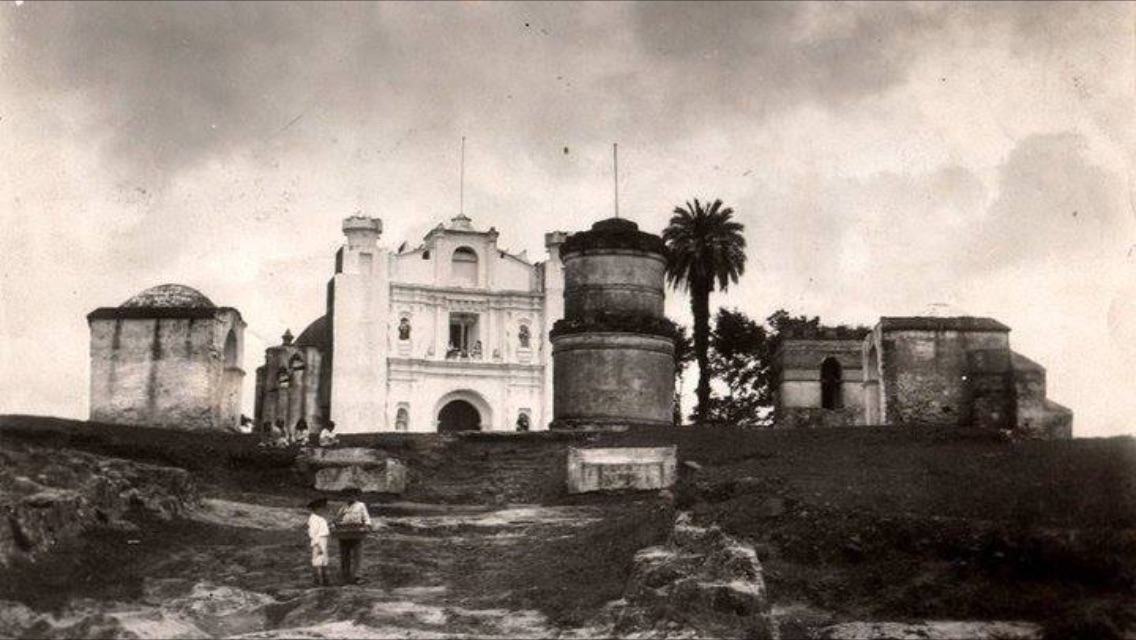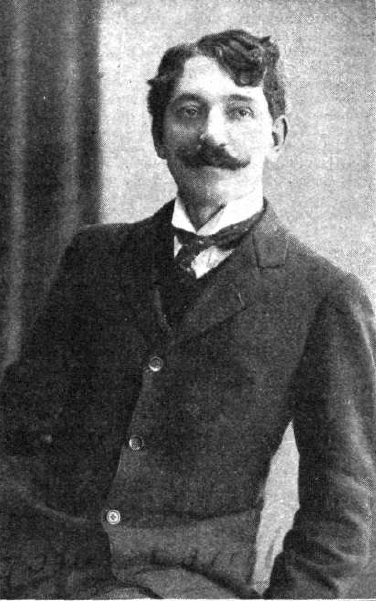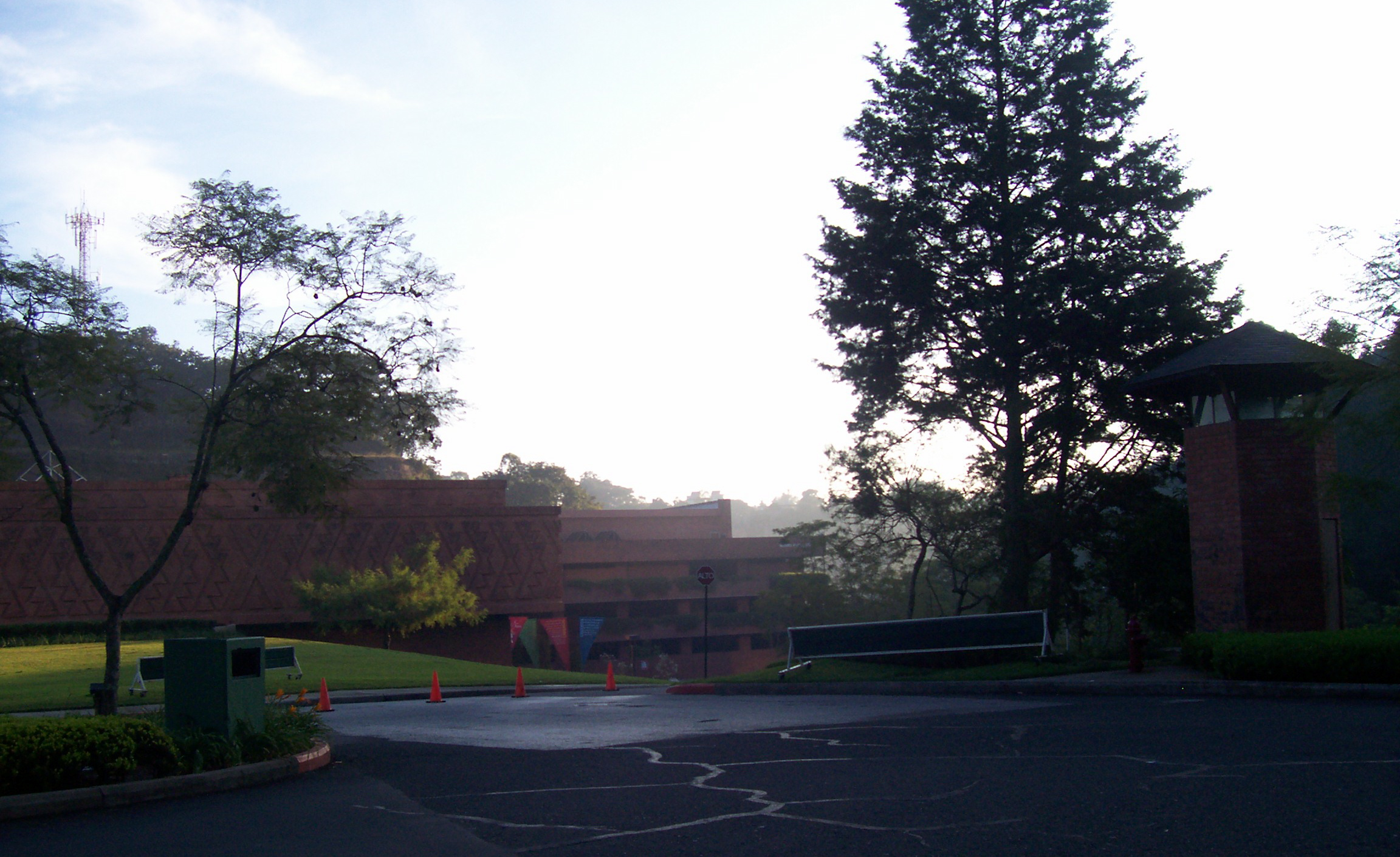|
Celia Barrios De Reyna
Celia Barrios Mazariegos de Reina (1 January 1834 - 5 July 1897) was the mother of President José María Reina Barrios and the 1st First Mother of Guatemala, and the sister of President Justo Rufino Barrios. Celia Barrios and Mazariegos was born in San Marcos in 1834, daughter of Simon Barrios and Antolina Mazariegos, and married Joaquín Reyna, in 1850. They were the parents of José María, Manuel, María and María Antonia. When her son General José María Reina Barrios reached the presidency on 12 March 1892, Mrs. Barrios was proclaimed "First Mother of the Nation", being the first country in which this term was used and being his only successor Mrs. Joaquina Cabrera, mother of the lawyer Manuel Estrada Cabrera Manuel José Estrada Cabrera (21 November 1857 – 24 September 1924) was the President of Guatemala from 1898 to 1920. A lawyer with no military background, he was a strong ruler (dictator) who modernised the country's industry and transportat .... She died o ... [...More Info...] [...Related Items...] OR: [Wikipedia] [Google] [Baidu] |
Joaquina Cabrera
Joaquina Cabrera (21 August 1836 – 3 July 1908) was the de facto First Lady of Guatemala and mother of Guatemalan President Manuel Estrada Cabrera. She had a large amount of influence on her son's government and she would be honored on her birthday after her death as if she were still alive. Her funeral, which took place on 4–5 July 1908, began in Guatemala City and traveled through Amatitlán, Escuintla and Mazatenango before returning by train to her home town of Quetzaltenango, Guatemala. Early life Joaquina Cabrera was born to parents Valeriano Arévalo and Juana Cabrera in Quetzaltenango, Guatemala on 21 August 1836, but her parents would separate shortly thereafter. Much is unknown about Cabrera's early life but for the details recorded in historian Rafael Arévalo Martínez's book ''¡Ecce Pericles!'' and the official Guatemalan government mouthpieces ''Álbumes de Minerva'' and ''La Locomotora'', the latter of those once referring to Cabrera as "the Distinguish ... [...More Info...] [...Related Items...] OR: [Wikipedia] [Google] [Baidu] |
José María Reina Barrios
José María Reyna Barrios (24 December 1854 – 8 February 1898) was President of Guatemala from 15 March 1892 until his death on 8 February 1898. He was born in San Marcos, Guatemala and was nicknamed ''Reynita'', the diminutive form, because of his short stature. He was a moderate of Guatemala's Liberal Party, who worked to solidify the less controversial of the reforms of late president Justo Rufino Barrios. Political life Reyna Barrios was nephew of Justo Rufino Barrios, and as such he started his political career while his uncle was still President of Guatemala. After Barrios sudden death in Chalchuapa, El Salvador on April 2. 1885, Reyna Barrios increased his political activity under the government of Manuel Lisandro Barillas, who was jealous of his popularity and sent him to Europe under false pretenses that there was a diplomatic appointment for him. The appointment never materialized and Reina Barrios was stuck in Europe and then in the United States for ... [...More Info...] [...Related Items...] OR: [Wikipedia] [Google] [Baidu] |
San Marcos Department
San Marcos is a department in northwestern Guatemala, on the Pacific Ocean and along the western Guatemala-Mexico border. The department's capital is the city of San Marcos. History Colonial period The Spanish conquest of Guatemalan Highlands occurred in the 1520s, followed by the establishment of the Province of Tecusitlán and Lacandón within the Viceroyalty of New Spain. Candacuchex, a settlement of the Mayan Mam people, became the site of the city of San Marcos, established in 1533. In 1546, once the Guatemalan archdiocese was established, bishop Francisco Marroquín split the ecclesiastical duties in the region among the Order of Preachers, Franciscans and Mercedarians, being the latter appointed to take care of "El Barrio" (in present-day San Marcos and Huehuetenango Departments), which was then a part of the Province of Quetzaltenango]. In 1609 the Captaincy General of Guatemala was established. In 1690, the Tejutla "curato" had a large area and included the mode ... [...More Info...] [...Related Items...] OR: [Wikipedia] [Google] [Baidu] |
Guatemala
Guatemala ( ; ), officially the Republic of Guatemala ( es, República de Guatemala, links=no), is a country in Central America. It is bordered to the north and west by Mexico; to the northeast by Belize and the Caribbean; to the east by Honduras; to the southeast by El Salvador and to the south by the Pacific Ocean. With an estimated population of around million, Guatemala is the most populous country in Central America and the 11th most populous country in the Americas. It is a representative democracy with its capital and largest city being Nueva Guatemala de la Asunción, also known as Guatemala City, the most populous city in Central America. The territory of modern Guatemala hosted the core of the Maya civilization, which extended across Mesoamerica. In the 16th century, most of this area was conquered by the Spanish and claimed as part of the viceroyalty of New Spain. Guatemala attained independence in 1821 from Spain and Mexico. In 1823, it became part of the Fe ... [...More Info...] [...Related Items...] OR: [Wikipedia] [Google] [Baidu] |
Guatemala City
Guatemala City ( es, Ciudad de Guatemala), known locally as Guatemala or Guate, is the capital and largest city of Guatemala, and the most populous urban area in Central America. The city is located in the south-central part of the country, nestled in a mountain valley called Valle de la Ermita ( en, Hermitage Valley). The city is the capital of the Municipality of Guatemala and of the Guatemala Department. Guatemala City is the site of the Mayan city of Kaminaljuyu, founded around 1500 BC. Following the Spanish conquest, a new town was established, and in 1776 it was made capital of the Kingdom of Guatemala. In 1821, Guatemala City was the scene of the declaration of independence of Central America from Spain, after which it became the capital of the newly established United Provinces of Central America (later the Federal Republic of Central America). In 1847, Guatemala declared itself an independent republic, with Guatemala City as its capital. The city was originally located ... [...More Info...] [...Related Items...] OR: [Wikipedia] [Google] [Baidu] |
President Of Guatemala
The president of Guatemala ( es, Presidente de Guatemala), officially known as the President of the Republic of Guatemala ( es, Presidente de la República de Guatemala), is the head of state and head of government of Guatemala, elected to a single four-year term. The position of President was created in 1839. Requirements to hold office According to article 185 of the constitution, the following is required to be president: * A Guatemalan of origin who is a citizen in good standing. * Forty years of age. Under article 186, relatives of the incumbent president or vice president are not allowed to run in the succeeding election. Duties and competences According to article 183 of the constitution, the following duties and competences are conferred to the president: * Comply with and enforce the Constitution and laws. * Provide the defense and security of the Nation, as well as the preservation of public order. * Exercise the command of the Armed Forces of Guatemala with all ... [...More Info...] [...Related Items...] OR: [Wikipedia] [Google] [Baidu] |
Justo Rufino Barrios
Justo Rufino Barrios Auyón (19 July 1835 – 2 April 1885) was a Guatemalan politician and military general who served as President of Guatemala from 1873 to his death in 1885. He was known for his liberal reforms and his attempts to reunite Central America. Early life Barrios was known from his youth for his intellect and energy, went to Guatemala City to study law, and became a lawyer in 1862. Rise to power In 1867, revolt broke out in western Guatemala, which many residents wished to return to its former status of an independent state as Los Altos. Barrios joined with the rebels in Quetzaltenango, and soon proved himself a capable military leader, and in time gained the rank of general in the rebel army. In July 1871, Barrios, together with other generals and dissidents, issued the "Plan for the Fatherland" proposing to overthrow Guatemala's long entrenched ''Conservadora'' (conservative) administration; soon after, they succeeded in doing so, and General Gar ... [...More Info...] [...Related Items...] OR: [Wikipedia] [Google] [Baidu] |
Manuel Estrada Cabrera
Manuel José Estrada Cabrera (21 November 1857 – 24 September 1924) was the President of Guatemala from 1898 to 1920. A lawyer with no military background, he was a strong ruler (dictator) who modernised the country's industry and transportation infrastructure, but only via granting concessions to the American-owned United Fruit Company, whose influence on the government was deeply unpopular among the population. Estrada Cabrera used increasingly brutal methods to assert his authority, including armed strike-breaking, and he effectively controlled the general elections. He retained power for 22 years through controlled elections in 1904, 1910, and 1916, and was eventually removed from office when the national assembly declared him mentally incompetent, and he was jailed for corruption. Background Estrada Cabrera was a lawyer. He studied at the Universidad Nacional and thanks to his work he reached the position of "First Designated for the Presidency" when José María Rei ... [...More Info...] [...Related Items...] OR: [Wikipedia] [Google] [Baidu] |
Universidad Francisco Marroquín
Francisco Marroquín University (Spanish: ''Universidad Francisco Marroquín''), also known by the abbreviation UFM, is a private, secular university in Guatemala City, Guatemala. It describes its mission as "to teach and disseminate the ethical, legal, and overall economic principles of a society of free and responsible persons." According to Milton Friedman, it is "one of the leading universities in Latin America." History It was founded in 1971 by Manuel F. Ayau, known as Muso. Its namesake is Francisco Marroquín, an early bishop of Guatemala and translator of Central American languages, but the university does not follow any of his teachings or philosophies. Started by members of Center for Economic and Social Studies with $40,000 and 125 students, UFM counted 2700 undergraduate students and 1500 graduate students as of 2009. The philosophy statement says that "universities need to place themselves beyond the conflicts of their time so that science and academic freedom – ... [...More Info...] [...Related Items...] OR: [Wikipedia] [Google] [Baidu] |
1834 Births
Events January–March * January – The Wilmington and Raleigh Railroad is chartered in Wilmington, North Carolina. * January 1 – Zollverein (Germany): Customs charges are abolished at borders within its member states. * January 3 – The government of Mexico imprisons Stephen F. Austin in Mexico City. * February 13 – Robert Owen organizes the Grand National Consolidated Trades Union in the United Kingdom. * March 6 – York, Upper Canada, is incorporated as Toronto. * March 11 – The United States Survey of the Coast is transferred to the Department of the Navy. * March 14 – John Herschel discovers the open cluster of stars now known as NGC 3603, observing from the Cape of Good Hope. * March 28 – Andrew Jackson is censured by the United States Congress (expunged in 1837). April–June * April 10 – The LaLaurie mansion in New Orleans burns, and Madame Marie Delphine LaLaurie flees to France. * April 14 – The Whig Party is officially named by Unit ... [...More Info...] [...Related Items...] OR: [Wikipedia] [Google] [Baidu] |
1897 Deaths
Events January–March * January 2 – The International Alpha Omicron Pi sorority is founded, in New York City. * January 4 – A British force is ambushed by Chief Ologbosere, son-in-law of the ruler. This leads to a punitive expedition against Benin. * January 7 – A cyclone destroys Darwin, Australia. * January 8 – Lady Flora Shaw, future wife of Governor General Lord Lugard, officially proposes the name "Nigeria" in a newspaper contest, to be given to the British Niger Coast Protectorate. * January 22 – In this date's issue of the journal ''Engineering'', the word ''computer'' is first used to refer to a mechanical calculation device. * January 23 – Elva Zona Heaster is found dead in Greenbrier County, West Virginia. The resulting murder trial of her husband is perhaps the only capital case in United States history, where spectral evidence helps secure a conviction. * January 31 – The Czechoslovak Trade Union Association is f ... [...More Info...] [...Related Items...] OR: [Wikipedia] [Google] [Baidu] |
People From San Marcos Department
A person ( : people) is a being that has certain capacities or attributes such as reason, morality, consciousness or self-consciousness, and being a part of a culturally established form of social relations such as kinship, ownership of property, or legal responsibility. The defining features of personhood and, consequently, what makes a person count as a person, differ widely among cultures and contexts. In addition to the question of personhood, of what makes a being count as a person to begin with, there are further questions about personal identity and self: both about what makes any particular person that particular person instead of another, and about what makes a person at one time the same person as they were or will be at another time despite any intervening changes. The plural form "people" is often used to refer to an entire nation or ethnic group (as in "a people"), and this was the original meaning of the word; it subsequently acquired its use as a plural form of ... [...More Info...] [...Related Items...] OR: [Wikipedia] [Google] [Baidu] |








_1938.jpg)